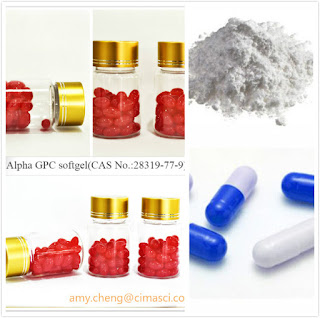Polydatin
Plant description
1. Plant source: The rhizome of the Polygonum cuspidatum Sieb. et Zucc.
2, origin: distributed in central and southern China, produced in Hunan, Hubei, Jiangsu, Zhejiang, Jiangxi, Fujian, Henan, Shaanxi, Sichuan, and other places. Born in the valley, by the river or on the shore.
Product description
CAS No.: 27208-80-6
English name: Polydatin, Piceid
Chemical name: 3-Hydroxy-5-[(1E)-2-(4-hydroxyphenyl)ethenyl]phenyl-beta-D-glucopyranoside
Composition Category: Stilbene steroids
Traits: white powder (98%)
Specification: 98% (HPLC)
Polydatin Price:usd400-usd475/kg
Molecular weight: 390.38
Molecular formula: C20H22O8
Structure:
Pharmacological effects:
(1) hypolipidemic and anti-lipid peroxidation
Studies have found that sublingual Polydatin 2.2mg.kg / d for 3 consecutive days, can increase the elevated serum cholesterol, low-density lipoprotein /high-density lipoprotein (LDL / HDL) ratio and hematocrit to normal, It also has a tendency to reduce the high shear rate and the low shear rate of whole blood. Another study has determined the degree of lipid peroxidation under the influence of exogenous free radicals and found that Polydatin can improve the stability of lipid membranes and has significant resistance. Lipid Peroxidation.
(2) Effects on vascular smooth muscle cells
The effect of Polydatin on rat vascular smooth muscle cells and human umbilical cord arterial smooth muscle cells showed that Polydatin has a two-way regulation of intracellular calcium pH. Under normal conditions, Polydatin not only promotes vascular smooth muscle extracellular calcium ions into cells but also induces cells. Intracellular calcium release, increase intracellular free calcium, increase PH to increase vascular tone, reduce intracellular calcium concentration during shock and reduce intracellular pH to reduce vascular tone, dilate blood vessels, and promote extracellular sodium ion inflow Cells are depolarized to regulate blood vessels, which may be involved in the opening of sodium and potassium channels and are inversely regulated by the adrenergic receptor H2 receptor system and the guanylate cyclase system.
(3) The effect on cardiomyocytes
It has been reported that studies on rat cardiomyocytes indicate that the cardiotonic effect may directly enhance myocardial contractility by increasing the concentration of free calcium ions in individual cells. This effect of Polydatin makes it theoretically superior to the digitalis of the digitalis, which not only makes the myocardial contraction more powerful but also makes the myocardial relaxation more thorough, thus greatly improving myocardial work efficiency.
(4) Hang platelet aggregation and improvement of microcirculation
Studies have found that Polydatin inhibits arachidonic acid, adenosine diphosphate, and adrenaline-induced rabbit platelet aggregation in vitro and in vivo, which is stronger than aspirin, indicating that anti-thrombosis of Polydatin is closely related to stronger anti-platelet aggregation. Related. This has a certain application value for the prevention and treatment of thromboembolic diseases.
(5) Antioxidant and liver protection
Oxygen free radical production is an important mechanism for causing multiple organ failure. Polydatin has significant antioxidant protection against the liver and inhibits the accumulation of lipid peroxides in the liver. Studies have shown that Polydatin can significantly inhibit the oxidative damage of mouse hepatocytes induced by hydrogen peroxide in a certain concentration range, and can improve superoxide dismutase (SOD) and glutathione peroxidation in hepatocytes. (GSH-Px) activity, reduce GSH consumption, reduce malondialdehyde (MDA) content, inhibit nitric oxide synthase (NOS) activity, reduce nitric oxide (NO) production and oxidation, thereby reducing oxide pairs Damage to liver cells.
Applications: In recent years, there have been more and more pharmacological and applied researches on polydatin. Polydatin and its products are widely used in medicine, beauty, health care, food, and other fields.
Recommended dosage:
Dietary supplements: As a food supplement for the antioxidant and health-promoting cardiovascular system, the recommended dose is 50-100 mg per day based on the active ingredient polydatin.
Wuxi Cimasci. could offer Polydatin 98%powder in stocks and formula matching with Palmitoylethanolamide (PEA), welcome your kind inquiry!
















